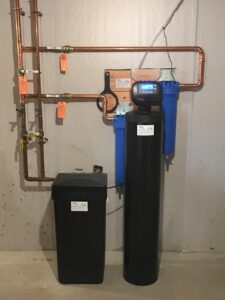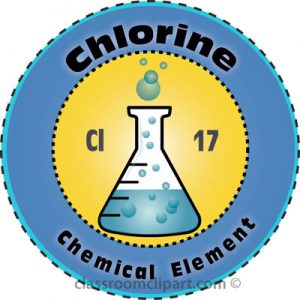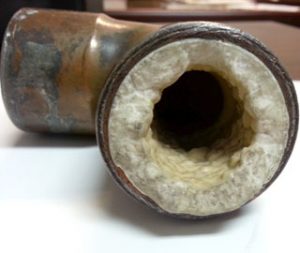WATER SOFTENER CONSIDERATIONS
Whether you have a private well or are on town water supply, a water softener may improve your home’s overall water quality. Water Softening will be very effective if you have hard water minerals (magnesium & calcium), iron or manganese in your water. Small amounts of these minerals can have large affects on your home’s water quality. The EPA maximum allowable levels for iron as a secondary contaminant is .3 parts per million (300 ppb). The EPA maximum allowable level for manganese as a secondary contaminant is .05 parts per million (50 ppb). As you can see, these are very small amounts, but their affects can create quite an impact. There are no limits on hard water minerals even though they can have damaging affects on your plumbing distributions system and create staining and much difficulty in cleaning fixtures, surfaces, etc.

High Efficiency Water Softener
THE AFFECTS OF IRON, MANGANESE & HARD WATER
Hard water affects include corrosion and scaling inside pipes, major staining throughout the home’s showers, bathtubs, and sinks and destruction of hot water heaters way ahead of their useful life (scale build-up inside hot water heaters can insulate the temperature sensor inside the tank causing them to work much harder to bring the temperature up to the set level). Iron and manganese in water can create rusty or black/brown staining and corrosion in the home as well. For more on hard water, see link hard water epa.
BAD TASTES & ODORS, SEDIMENT 
In addition to the above system, there are many other types of systems to remove bad tastes & odors, sediment and many other objectionable minerals and contaminants in the water. Starting with a water test will dictate the right approach. For more information on common bad odors & tastes in New England water supplies, see the link at http:/bad-odor-taste-water/.




